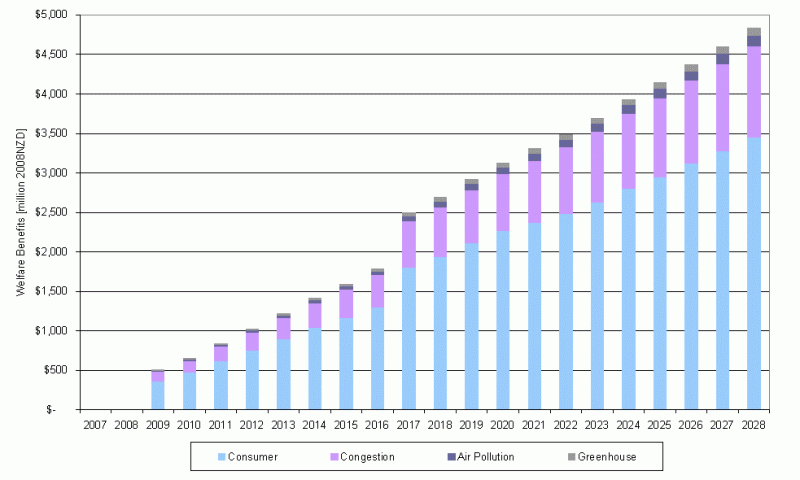- Home
- About
- Local groups
- Community
- News
- Resources
- Offer Support
- Contact us
Oil Price Response Plan For New Zealand Ignored
Prime Minister John Key's only response to rapidly rising oil prices has been to say "the government is powerless - there is nothing we can do". Not so. A 2008 report commissioned by the New Zealand Transport Authority sets out a comprehensive blueprint as to how both central and local government can at low cost, reduce New Zealand's dependence on imported oil, with huge economic benefits to the economy and consumers. The independent report is entitled "Managing Transport Challenges When Oil Prices Rise".
In this and subsequent blogs, I will detail the report's findings and recommendations.To kick things off, here is a summary of the report's major findings.
Setting
- The price of oil is a key driver of the cost of using, maintaining, constructing, and operating the transport network.
- Oil prices may be expected to reach approximately $150 USD/barrel in 2012; this is expected to combine with a depreciating New Zealand Dollar to push petrol and diesel prices up to $2.80 and $2.50 per litre respectively.
Future travel demands modelled

- Future travel demands were modelled with respect to the three fuel price scenarios - high, average and low, as well as assumed trends in economic growth, vehicle ownership, labour force participation, disposable income, and population growth.
- Under the Average fuel price scenario total NZ vehicle kilometres travelled is expected to remain below 2007 levels until circa 2016 – even without taking into account the impacts of higher prices dampening economic growth and vehicle ownership
Toolbox of responses
The report identifies a toolbox of potential responses that enable government agencies to facilitate the development of a more efficient transport system.
- Fewer parking spaces in cities and higher parking fees
- Road pricing so drivers pay directly for the roads they use
- Charging businesses for how many car parks they provide to help fund road maintenance
- Encouraging businesses to offer cash or public transport subsidies instead of company cars and car parks
- Requiring new workplaces to provide showers and lockers so people can walk or bike
- Turning roads into cycle and pedestrian-friendly streets – reducing speed of traffic
- Tax incentives for fuel- efficient vehicles
- Encouraging denser land use with a mix of housing, retail and commercial properties so people have less need for cars
- More investment in public transport – bus and carpool lanes, park and ride stations, buses and trains, and electronic ticketing
(I will examine these and other recommendations in subsequent blogs)
Impacts of the Recommended Responses
- The analysis found that the responses cause a pronounced shift in travel demand growth away from light passenger vehicles to alternative transport modes
- The responses contain future growth in vehicle travel at or below current levels for the next twenty years.
- They reduce per capita dependence on oil based transport fuels by approximately 20%.
- These gains ensure that average consumer expenditure on oil based transport fuels increases only marginally from current levels even under the high oil price scenario.
- The economic benefits included consumer savings, such as fuel and vehicle operating expenses, and welfare benefits, such as congestion reduction, air pollution, and greenhouse gases.
- annual benefits in the order of $5 billion by 2028

Conclusion
- The responses recommended in the report are likely to deliver improved energy efficiency and permanent on-going economic benefits to consumers, business, and public bodies.
- They are “no regrets” measures that deliver “win-win” outcomes – regardless of the price of fuel.
Yesterday MP. Gareth Hughes asked Finance Minister Bill English during Question time whether he would act on the Report's recommendations, and respond to higher oil prices. His replies reveal the just how far his head is buried in the sand.
re-posted from my blog - oilshockhorrorprobe
Recent comments
16 weeks 5 days ago
39 weeks 6 hours ago
42 weeks 2 days ago
46 weeks 13 hours ago
49 weeks 6 days ago
1 year 3 days ago
1 year 3 days ago
1 year 12 weeks ago
1 year 29 weeks ago
1 year 41 weeks ago